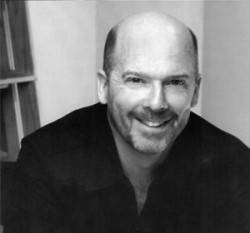 I don’t remember details about the first time I saw Bob Fosse’s 1972 film, Cabaret. It was 1978 (give or take a year), and I was either 12 or 13 years old. We had HBO, and I think that’s how I first gained access to the story (I know it wasn’t at a theater).
I don’t remember details about the first time I saw Bob Fosse’s 1972 film, Cabaret. It was 1978 (give or take a year), and I was either 12 or 13 years old. We had HBO, and I think that’s how I first gained access to the story (I know it wasn’t at a theater).
I didn’t catch all of the references; I certainly didn’t understand the sexual themes. But I remember being utterly captivated by the music, the costumes, the dancing, the cabaret girls, and Liza Minnelli’s fake eyelashes, her clothes, her everything. Cabaret is how I learned that average citizens in Germany supported Hitler’s agenda (or they were apathetic about it). And it’s how I learned about abortion.
I wasn’t aware that the film was based on a musical until decades later, and it would be even more years before I learned that the musical was based on a dramatic play, that was, itself, based on a novella. I adore this play. It’s among my top three favorite musicals of all time (Les Misérables and Jesus Christ Superstar being the other two), and it’s what I’m most looking forward to this season at the Krannert Center.
Cabaret opened last night, but I won’t be able to see it until Saturday. I contacted Robert Anderson, the play’s director, and peppered him with questions about his thoughts on Cabaret‘s long history, his cast, and his own inspiration for this production.
~~*~~
SP: For those not familiar with it, can you tell us about the history of this musical?
 Robert Anderson: One of the reasons that I chose this musical was because I love it. I love the play and I see a lot of commonality for us in terms of our culture of distraction. And I thought it would be great to train young actors with such a brilliant show and a brilliant score, and to be able to investigate the history of the play and the history surrounding the play.
Robert Anderson: One of the reasons that I chose this musical was because I love it. I love the play and I see a lot of commonality for us in terms of our culture of distraction. And I thought it would be great to train young actors with such a brilliant show and a brilliant score, and to be able to investigate the history of the play and the history surrounding the play.
The characters originated in a different form, in Christopher Isherwood’s book [Goodbye to Berlin, pub. 1939]. It was adapted for stage [John Van Druten’s play, I Am a Camera, 1951] and then turned into a musical, which was a brilliant masterwork.
The way that it uses the cabaret song tradition interspersed throughout Isherwood’s story is incredible. Connections are made about the history, but also about relationships and the overriding themes of when this kind of freedom becomes distraction, and how a free democracy and exploration of sexuality and personal expression can become a trap. And I think the way that the play is framed where you have this journey down … it’s a very modern play, the structure where we go from the middle of a good time to the beginning of the bad time. There’s something about the way that’s written that I find so sophisticated, because we know how it ends, but the way that it’s used, that tension of our knowing that, in the writing, is incredible.
SP: I’m ashamed to say that I’ve not read Goodbye to Berlin and I’ve never seen I Am a Camera. Have you read or seen either of them?
Anderson: I have in the past, in my twenties. I saw the film and I’ve read the play, and I’ve looked at all the other adaptions early in my process of directing this play. I wanted to know what they saw, what they heard, what they did in the original film (which is my favorite). I looked at everything, and I like to look at everything early. We [in the theatre department] selected our plays about a year ago, so this has been in the process for many months. I like to do all the research in the beginning so I don’t get too influenced by other people’s interpretations.
And luckily the book of the play and the songs that are included in the play are very different than the film. I think the film is brilliant and that Bob Fosse is a genius, but it’s a very free adaptation of the play. But I don’t want to be too influenced by the genius of others. So I was able to look at all of that information in books and do a lot of research about the Berlin Republic and the cabaret world.
I also had the help of my wonderful music director Kent Conrad, a great researcher. Sonia Warfel is my choreographer and she did great period research, and not just about the time, but really about the world. Kyle Thomas is our dramaturg and he came on board pretty early and helped conduct a lot of research. And all of that was very helpful for me and the designers and the performers in understanding this world.
SP: Can you discuss some of the actors in your production, particularly those playing Sally Bowles and the Master of Ceremonies?
 Anderson: Sally Bowles is played by Dana Parker. She’s a senior BFA in our actors program, and she’s very talented. She can sing like a dream. She’s open to her role in a way that’s very good for playing Sally. She’s not afraid of Sally’s sexuality, which is very fortunate for the role [Laughs]. I’ve worked with her before, so we already have a solid director/actor relationship.
Anderson: Sally Bowles is played by Dana Parker. She’s a senior BFA in our actors program, and she’s very talented. She can sing like a dream. She’s open to her role in a way that’s very good for playing Sally. She’s not afraid of Sally’s sexuality, which is very fortunate for the role [Laughs]. I’ve worked with her before, so we already have a solid director/actor relationship.
Dana’s willing to focus on the complexities of the character and explore them in ways that other actresses might want to sanitize, like, for example, Sally’s lack of awareness. Other actresses often want to explain that away, but Dana explores the fact that Sally is a fabulous, free person, but she’s also an asshole.
SP: Right! She puts herself first, above everyone and everything else going on around her.
Anderson: She’s out of it, and more committed to the dream of who she’d like to be than what is actually occurring. She’s light and bright and fresh and giving, but as the trouble descends, part of her wants to hold on to those delusions. And Dana isn’t shying away from that, but rather exploring it in a full-bodied way.
SP: The role of the Master of Ceremonies has been famously played by Joel Grey and Alan Cumming. And both played them very differently, didn’t they?
Anderson: I saw the 1998 revival at Studio 54, with Cumming as the MC. They were really exploring the edges of the role ― a highly hypersexualized version of it, which I appreciated. But I’m looking for more of a journey, beginning with a more fresh and beautiful and positive sexuality in the beginning and then moving down to something that might be darker and edgier.
 In this production, a woman is playing the MC. I’ve not done much research about this; I assume it’s been done before, but I don’t know for sure. I try, in my casting, to pick the best person for the part and Carley Cornelius truly was the best person. She played Peter Quince, another male role, in Lisa Dixon’s A Midsummer Night’s Dream.
In this production, a woman is playing the MC. I’ve not done much research about this; I assume it’s been done before, but I don’t know for sure. I try, in my casting, to pick the best person for the part and Carley Cornelius truly was the best person. She played Peter Quince, another male role, in Lisa Dixon’s A Midsummer Night’s Dream.
SP: I remember that. She was great.
Anderson: I’ve directed Shakespeare here in the past, and my main career has been as a Shakespearian actor. I’ve performed Shakespeare for thirty years, and that was the best Shakespearian performance I’ve ever seen. And Carly is startling she’s so good. I looked at other people for the role, but I kept coming back to her.
You know, there was a lot of homosexuality, bisexuality, and transgenderism in the cabaret culture. It was part of the freedoms that were explored…
SP: And it’s part of what made it so great.
Anderson: It’s part of what made it so great, and it’s part of what made it so easily demonized at some point. I’m gay, and I’m always interested ― without being too pushy about it ― in exploring these issues, especially in this area of the country.
SP: [Laughs] You’re making the world a better place.
Anderson: [Laughs] I think it’s my duty.
SP: But it’s Berlin and it’s cabaret. I don’t think it’s forced here. Berlin, even today, is the same as it was back then. It makes complete sense.
Anderson: Especially in a play that’s about that kind of world. In this setting, it’s kind of required.
SP: Different revivals have various musical scores. And some in the past have chosen to perform “Money, Money” instead of “Sitting Pretty.” Others have conjoined the two songs. Will we get to hear “Sitting Pretty” or will your production only perform “Money, Money.”
Anderson: We perform the combined version. I cut a couple of very small tunes, a short, transitional song. We’re allowed to do that if we simply don’t have the people to sing it, or we don’t have the technology to produce it. We’re really basically doing the revival revision.
“The Money Song” is choreographed by Zak Jacobs, a student choreographer and it’s a great number.
And I want to also mention that our costume designer is Helene Siebrits. This is the first time that she’s designed for us, and she’s incredible. And we have wonderful student artists working on the project too.
SP: Last year, I saw the production that came through for The Broadway Series, and it ended similarly to the 1993 London Revival. You mentioned that your production is faithful to the revival revision. In that production, the final scene came out of nowhere. I didn’t anticipate it and I was stunned.
Anderson: There is something very haunting about it, isn’t there?
SP: Thank you very much for agreeing to talk with us.
Anderson: I really appreciate you previewing this production and reviewing our plays in the past.
Future Shows:
Friday–Saturday, October 14–15, 7:30 p.m.
Thursday–Saturday, October 20–22, 7:30 p.m.
Sunday, October 23, 3:00 p.m.








